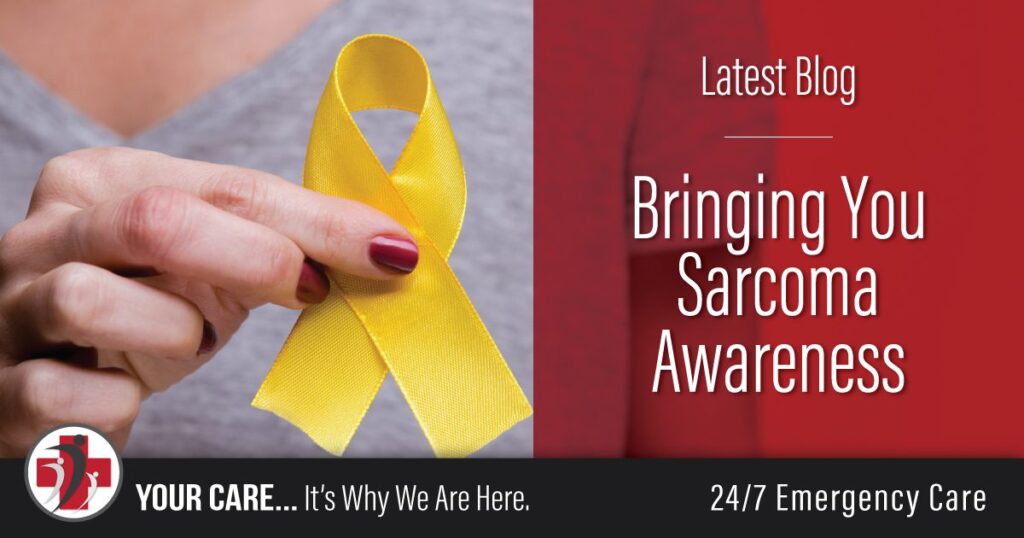Cancer is never a fun topic, but July is Sarcoma Awareness Month, and as your Fountain Hills medical team, we feel compelled to spread the word about this far-reaching cancer.
Sarcoma cancers are unique in that they begin in the soft tissues (also known as connective tissues) which include the tendons, fat, muscles, nerves, internal organs, or blood vessels. Sarcoma can also begin in the bones. This cancer, sadly, affects kids with a higher frequency than it does adults, making up less than 1% of adult cancers while accounting for 15% of cancers in children under 20.
There are over 70 types of sarcomas, and the most common include leiomyosarcoma (affects the lung), liposarcoma (begins in fat cells), and undifferentiated pleomorphic sarcoma (affects soft tissues, often in the arms or legs).
Those who have a family history of soft tissue sarcoma are at a slightly higher risk for developing this cancer. But otherwise, there are other factors that put people at a higher risk for developing sarcoma.
-
History of radiotherapy treatment
Because radiation often affects healthy tissue surrounding the cancerous area, a sarcoma can develop in this compromised tissue
-
Chronic swelling
When the lymphatic system is damaged or blocked, lymphedema (swelling) occurs, increasing the risk of a certain kind of sarcoma
-
Exposure to radiation in the environment
This was found to be the case after atomic bomb explosions in Japan after World War II
-
Exposure to specific chemicals
The International Agency for Research on Cancer found limited evidence that development of sarcomas are linked to the following chemicals:
- radioiodines, including iodine-131
- polychlorophenols
- 2,3,7,8-tetrachlorodibenzo-para-dioxin
-
In children, having experienced an umbilical or inguinal hernia
It’s not clear why these hernias cause children to have a slightly higher chance of developing an Ewing sarcoma, but the muscle weakness associated with hernias in the belly and groin appear to pose a risk
-
Neurofibromatosis
This condition which causes non-cancerous tumors to form in various parts of the body can slightly increase a person’s risk of developing a rare type of sarcoma called a malignant peripheral nerve sheath tumor (MPNST)
There are a few warning signs you can watch for that might indicate sarcoma. These include a sudden and unexplained bone break, unexplained abdominal pain, a lump that can be felt under the skin (sometimes painless), or unexplained weight loss.
If you’re concerned about sarcoma in yourself or someone else, getting medical tests completed is the only way to accurately detect, or rule out, cancers. Your doctor may recommend any one or combination of the following tests: MRI, PET scan, CAT scan, X-ray, ultrasound, or a biopsy.
In general, there are things you can do in your everyday life to minimize your risk for cancer. These include staying at a healthy weight, eating a steady diet of fiber and a myriad of produce, not smoking or using other tobacco, using sunscreen, and staying active. At Fountain Hills Medical Center, your Fountain Hills medical professionals can provide many ideas for how you can stay healthy, active, and lower your risk for developing cancer. Cancer prevention in Phoenix is important, and as your expert care that’s close to home, we’re here to help.
Sources:
- mayoclinic.org
- cancer.org
- stanfordhealthcare.org
- cancer.net
- cancerresearchuk.org
- nfcr.org

